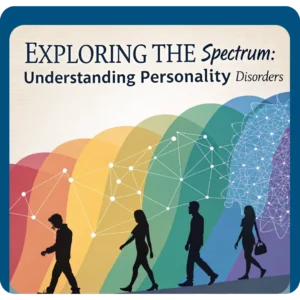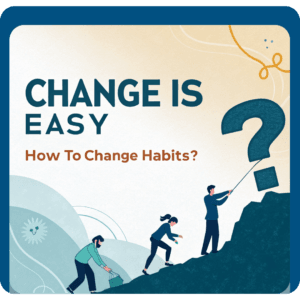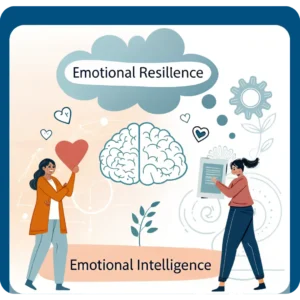Happiness can be a Limitation
Table of Contents
In today’s environment, we are continually taught that happiness and well-being are the ultimate aim. From social media influencers to self-help books, the message seems clear: if you’re unhappy, there’s something wrong with you. This fixation with hope and happiness may appear harmless, but what if our relentless pursuit of happiness is holding us back? What if attempting to be happy all the time limits our ability to experience life fully?
In this blog, we will explore how pursuing happiness can sometimes hold us back and why embracing discomfort and difficult emotions is essential for personal growth. We’ll discuss how seeking purpose and meaning, rather than just peace and happiness, can lead to a deeper and more fulfilling life.
The Happiness Trap: Why It is Limiting?
Happiness is frequently viewed as a final point. People strive for it on the assumption that once they have it, all of their problems will be solved. But here’s the deal: bliss is transitory. It comes and goes like the weather, and no matter how hard you try, you can’t make it stay. By consistently striving to maintain a joyful condition, we begin to avoid everything that makes us sad or uncomfortable. By doing so, we continue to be in the effect of everything we avoid rather than dealing with it head-on.
When we avoid obstacles, we miss out on development opportunities as well. Consider this: every time you’ve encountered genuine personal growth, it was most likely during a challenge, difficulty, or struggle. When you ignore difficult feelings in the quest for happiness, you deprive yourself of experiences that will help you grow stronger, more robust, and wiser.
The Myth of Constant Happiness
Society has fed us the notion that we should always be happy. However, this is not practical. Life is a constant range of ups and downs, times of joy and sorrow. This emotional variability is what gives life richness and meaning.
Consider eating your favorite dish every day, over and over. It would eventually stop being fun. The same is true for emotions—happiness loses its depth in the absence of melancholy. Limiting ourselves to the happiness zone prevents us from experiencing the whole range of human emotions. This encompasses grief, frustration, rage, and fear. However, these “negative” emotions play an important function in helping us understand ourselves and the world around us. They assist us in recognizing what is important, what has to be changed, and where we may improve.
Discomfort promotes growth
If the time of happiness is a constraint, then discomfort is a motivator for growth. Consider the last time you encountered a difficult situation—whether it was a challenging task at work, a painful conversation with a friend, or a personal challenge you had to overcome. While these experiences were difficult, they most certainly taught you something useful about yourself or your ability. There is a different kind of happiness mindset we experience once we overcome a challenge.
Growth occurs when we venture outside of our comfort zones. Discomfort is a normal component of the learning process, whether it is learning a new skill, confronting phobias, or developing resilience. We miss out on our opportunities to grow because we are constantly chasing happiness therapy instead of embracing discomfort. Instead of perceiving discomfort as something to be avoided, we should accept it as a natural part of life.
The Danger of the “Positivity-Only” Culture
Being preoccupied with happiness has also resulted in a culture that emphasizes optimism over everything else. You’ve undoubtedly noticed the constant posts on social media about being grateful, remaining positive, and seeking a bright side in every scenario. While positivity has its purpose, overemphasizing it can result in toxic positivity.
Toxic positivity is the idea that no matter how bad circumstances are, you should always find the positive in them. While this may seem like sound advice, it really pushes people to repress their true emotions. If you are going through a difficult situation, appearing to be joyful will not solve the problem. In reality, it frequently worsens the problem by preventing you from addressing the main cause.
By emphasizing always being joyful and positive, we inhibit our capacity to deal with unpleasant feelings in an appropriate way. We eventually bottle them up, which can lead to exhaustion, anxiety, and despair.
Tips for a Balanced Approach to Happiness
1. Constant Happiness: Choose to Be Present
It is a frequent misconception that we should always be happy no matter what, which leads to excessive stress and irrational expectations. Actually, feeling good all the time isn’t what it means to be consistently happy. Everyone experiences tension, irritation, and despair because these emotions are normal parts of life.
Happiness as a choice means navigating those natural feelings rather than forcing positivity. Being grounded in the present moment is essential for true happiness therapy. It’s accepting life as it is, without linking our feelings to certain outcomes or circumstances.
Some ways to embrace presence and contentment:
- Practicing gratitude for what we have, instead of focusing on what’s missing.
- Accepting tough times as part of the journey and learning from them instead of resisting them.
Connecting to the present moment, not getting lost in worries about the future or regrets about the past.
2. Discomfort: Ease Is Not Always Easy
Though genuine ease isn’t always simple, we frequently mistake ease for comfort. Often, what we call discomfort is simply change or unfamiliarity. Things that make us uncomfortable are simple to avoid, yet that discomfort may simply be a necessary part of the growing process.
Consider this:
- What have I mistakenly classified as discomfort?
- Is beginning a new job genuinely uncomfortable, or is it merely unfamiliar?
- Is setting boundaries awkward, or is it the fear of change?
- Is gaining new skills difficult, or is it a necessary element of development?
Thinking about this helps provide clarity and courage. Reframing discomfort as a necessary component of the process allows for opportunities for personal growth.
3. Toxic Positivity: Allowance Instead of Suppression
Toxic positivity overlooks the actual problems we encounter. We end up pushing aside our true emotions when we attempt to create happiness in every circumstance, which might ultimately make things worse. It’s okay to feel down sometimes—life is unpredictable, and not every day will be happy or prosperous.
Allowing yourself to experience sadness, anxiety, or frustration is a sign of emotional intelligence. You genuinely create space for healing and growth when you give yourself permission to feel your emotions. To be truly emotionally healthy, one must experience all kinds of emotions rather than striving for constant happiness.
Ultimately, happiness and well-being stem from striking a balance between not forcing oneself to always be positive and accepting that it’s okay to feel bad when life gets tough. Releasing yourself from toxic positivity allows you to truly embrace life and all of its highs and lows.
Conclusion
The relentless quest for peace and happiness might impede our ability to grow and find fulfillment. Happiness is fleeting, and if our only goal is to remain happy, we neglect to experience the challenging emotions that are necessary for growth as individuals.
Joy and discomfort coexist in life, and our most significant learning experiences frequently stem from obstacles we face. By embracing discomfort instead of chasing the happiness center, we become wiser and stronger. Furthermore, the pressure of a positivity-only culture can suppress true emotions and hinder healing.
True happiness and well-being come from embracing all emotions—not just the positive ones.
—
Suvanjali Lama, Clinical Psychologist and Research Executive at Treta Foundation and Sonali Mittra, Director, Treta Foundation
FAQs
Yes. Always trying to stay happy can stop you from facing hard emotions that help you grow.
Because happiness is temporary. Expecting to be happy all the time causes disappointment.
Toxic positivity is forcing yourself to always stay positive and ignoring genuine feelings like sadness or anger.
Yes. Pain, discomfort, and challenge often lead to strength, self-understanding, and resilience.
Many self-help, social media, and cultural messages tell us happiness should be the goal—and that anything else is wrong.
Focus on purpose, values, relationships, and growth—things that matter beyond momentary joy.
Yes. Being present helps you accept life as it is, rather than always waiting for “better.”
Acknowledge your feelings without judgment, express them in safe ways (talk, write, art), and understand they’re part of life.
Yes. Avoidance might feel good short-term, but it prevents growth and deeper fulfillment.
Yes—balance comes from accepting ups and downs, using hard times to build strength, and enjoying the good moments fully.




